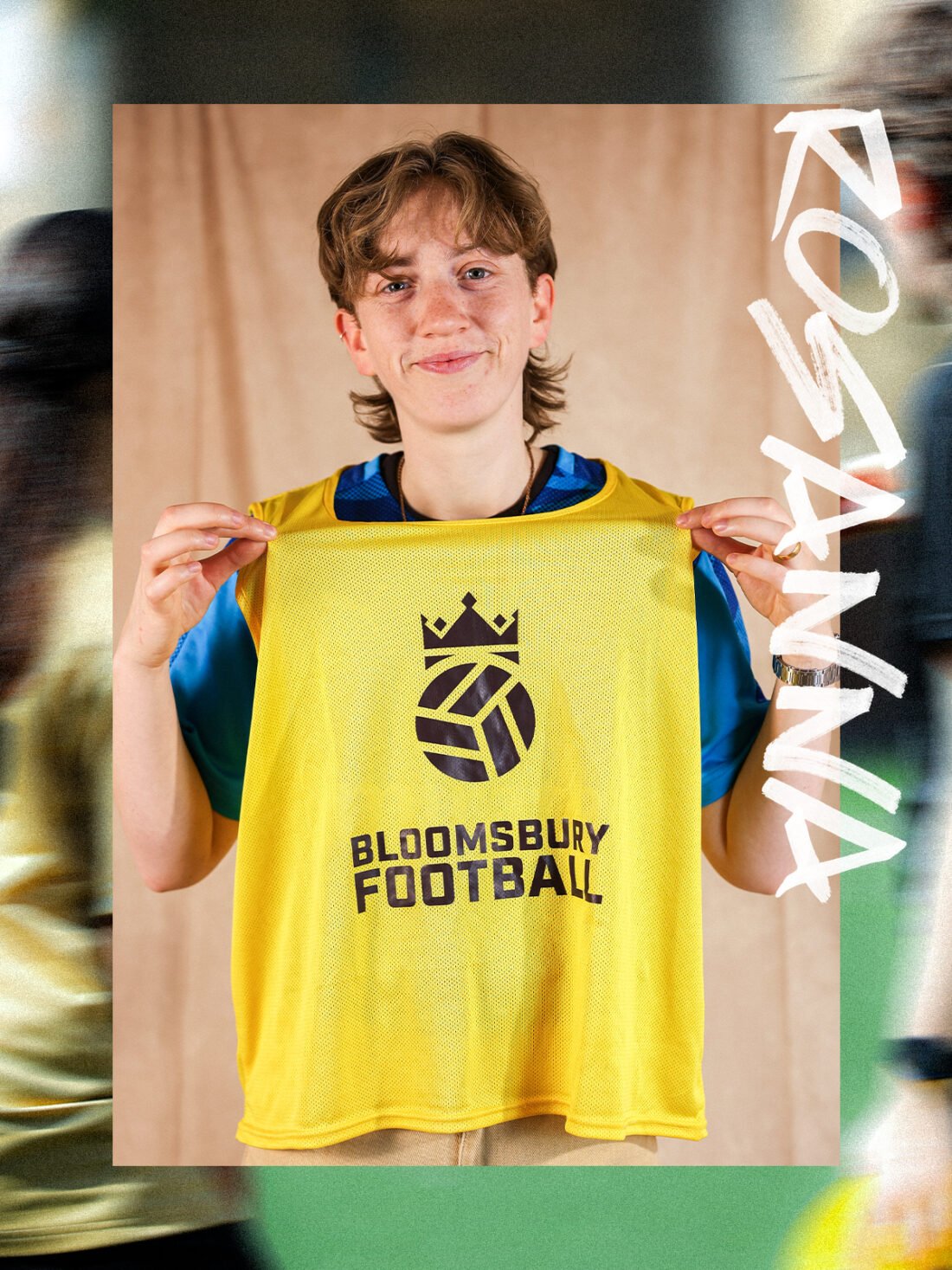Rosanna is 28 and has coached across Bloomsbury Football Foundation’s programmes while representing our championship winning Women’s Futsal team.
We’re celebrating Rosanna’s story as a part of our ‘My game, my rules, my wins’ campaign alongside the 2025 UEFA Women’s Euro tournament – rewriting what it means to be a winner and show that more girls playing football means more winning, for everyone.

For Rosanna, winning means two things: succeeding to the highest level as an elite athlete, and creating safe spaces for players to fail when coaching. Read Rosanna’s story in their own words:
“I’ve been coaching for six or seven years. At Bloomsbury, I started coaching in the Girls’ Academy before getting more involved in the Community sessions, alongside playing Futsal and winning championships with that team.
Football has always been there my whole life. I used to kick a ball around the park and the house with my two older brothers. My first word was actually “ball”.
I remember wanting to get better at the skills and wanting to be as good as the boys in my class, wanting to prove myself in the playground so that I could play at lunch time.
I could have a bad week at school, go play football and lose, and still feel good for it. I was learning as a kid like what it’s like to lose and how to cope with that. Just running around made me feel better.
I played mixed football until I was 11 years old when the coaches said “you should probably find a girls’ team”, but they didn’t help me find one. I was trying to be that step above grassroots, and joined Leyton Orient which was like a Centre of Excellence, but it folded a couple of years later.
When I was a lot younger, my role models were male footballers. I think I was the last generation like that. I remember meeting Kim Little. She was Arsenal’s left winger and I played on the left too. I asked her “What’s it like being a professional footballer?” She laughed and said, “I’m not a professional”. That really stuck with me.
Luckily, women’s football is changing. It’s started with media, TikTok or BBC News showing it more and making it more accessible. I hear of male fans saying men’s football isn’t giving them much joy, so they’re going to jump into what the Lionesses are doing. It’s a way to enjoy football in a fresh way.
The sport is getting bigger and bigger, and getting better each tournament – the quality of goals, the quality of defending. This summer is a great opportunity as a coach to put myself out there and wave the flag for women’s football, to get even more people involved.
As a girl, when you’re starting to play football and might be unsure about coming into a new environment, seeing a coach that isn’t male can be important. It might be a clunky phrase, but I don’t always identify as female, and I think the wording around having a role model that isn’t male feels very at home for me.
Coming onto football at any age is really important. Society and media can be against young girls and make it hard for them to feel confident about themselves. Learning a skill, or picking up a new sport, is so important in showing yourself that you can learn something new and exciting.
I’ve seen 15-to-16-year-olds come to football quite late and seen them come out of their shell. They might not be the best player on the pitch, but their new teammates just appreciate them for them.
As an elite athlete, winning to me is succeeding to my highest level so that the team can succeed. As a coach, it’s about seeing the kids that I’m coaching be happy. I strive to create space for the girls to be free and able to make mistakes – you want to see them feel okay, so they learn skills in a safe space. Seeing them happy in the space that I’ve created is so fulfilling for me.”